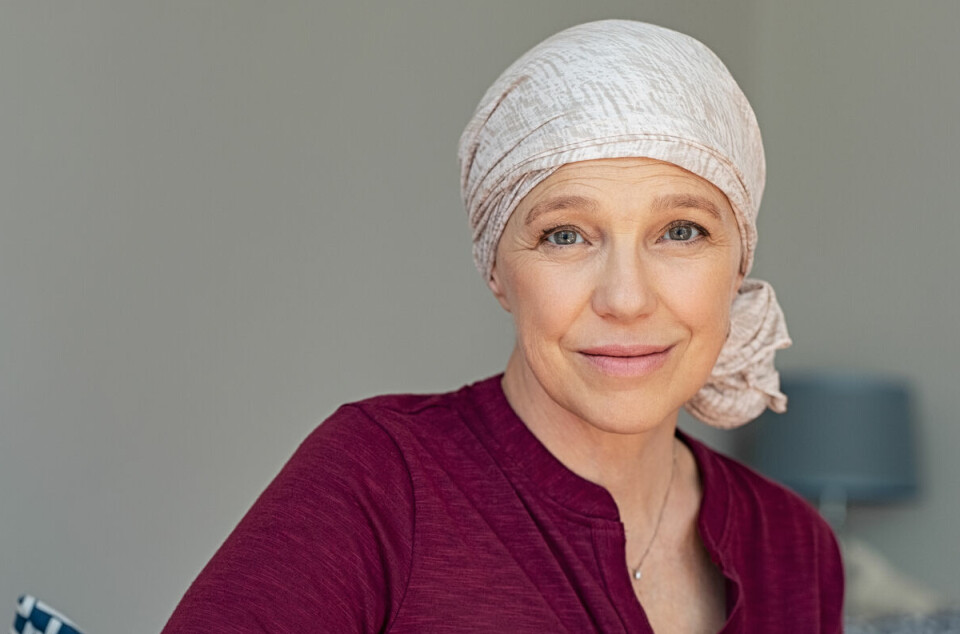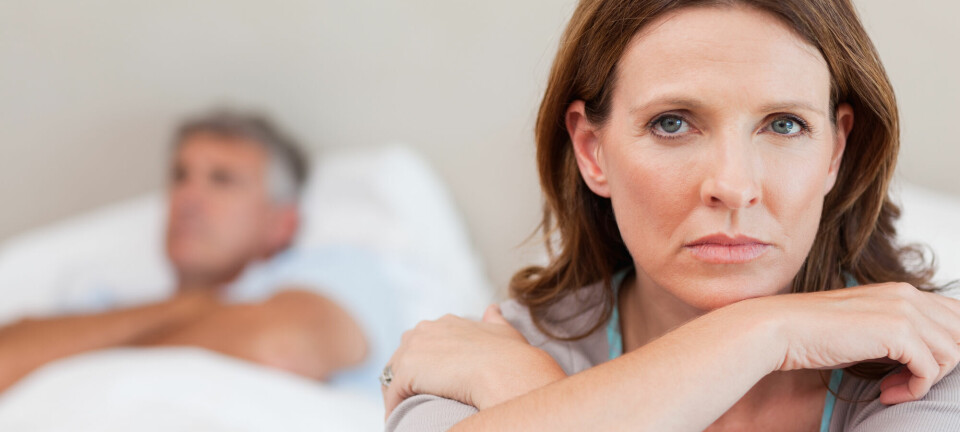
Sex after gynaecological cancer:
"As soon as he strokes my back and especially my stomach, I go into defensive mode"
They have survived, but for women who have had gynaecological cancer, the treatment can linger in the body as a trauma, a new study shows. A Norwegian-developed programme can now enhance women's sexuality.
Before ‘Hannah’ got gynaecological cancer, she valued sex and intimacy with her boyfriend. But when this woman in her 30s had finished her cancer treatment, everything changed.
‘So much has happened, my body has been ravaged. As soon as he strokes my back and especially my stomach, I go into defensive mode,’ Hannah is quoted as saying in a new study from Sigrund Breistig's doctoral research at VID Specialized University.
Of the 20 women Breistig interviewed, several described both the cancer and the treatment as traumatic. Some compared it to being assaulted.
'When I left the hospital I said to my husband, the way that I feel now must be something similar to what those who have been raped feel,' said ‘Mary’, a woman in her 60s.
Experienced the treatment as a trauma
Removal of the uterus, radiation, and chemotherapy can leave big mental and physical scars. In addition, the vagina may become sore, stiff, and painful. Some women may also find that the operation has made their vagina shorter.
So even if the participants in the study understood that the treatment saved their lives, the body may remember the experience as a trauma, according to Breistig.

“It was not an assault, it was a cancer treatment, but the body might be in a state of alert,” she told sciencenorway.no.
Nevertheless, there is help available, the researchers behind the new study believe.
Learned how to talk to her boyfriend
The participants in the study used a digital programme called Gynea.
The rehabilitation programme was created for women who have gone through gynaecological cancer and treatment. One of the themes is sexuality.
Three fictional women tell their stories in the digital programme. Users are also given practical tasks. They are asked to reflect and write down thoughts about their own sexuality, and use tools such as mindfulness to get a feeling of what is good for their body.
‘Hannah’ described it as ground-breaking to learn how she could talk to her boyfriend about what she was going through and figure out together what sex and intimacy will be for them now.
Can redefine sexual health
Risa Lonnée-Hoffmann at the Norwegian University of Science and Technology (NTNU) has not taken part in the new study, but has studied how the removal of the uterus affects women's sexuality.

She praises the new study for how it looks at the whole individual, meaning the psychological and social aspects of a person in addition to the purely physical.
“What's very positive is that this is an example of how a comprehensive measure can redefine the sexual health of women,” Lonnée-Hoffmann writes in an email to sciencenorway.no.
This was how ‘Diana’ experienced it. The woman in her 40s said that the programme made her reflect more on what she herself really wanted and needed.
'Before, I have not really shown what I was feeling on the inside and rather been the person that I thought others wanted me to be,' 'Diana' said.
Not rosy
But this aspect of the programme was not useful for everyone.
For some, sex was far down on the list of their priorities. Several also did not have an active sex life before they got cancer and were therefore not very interested in this part of Gynea.
“This is in line with my own research, which shows that it's much more difficult or sometimes not possible to help women who have problems with sexuality in the first place,” Lonnée-Hoffmann writes.
Breistig also believes that the digital tool worked best for those who recognised themselves in one of the three fictitious women. An improvement could therefore have been to include more and different stories.
In any event, none of the women experienced that everything was rosy after the cancer diagnosis and treatment, she points out.
Avoid penetrative intercourse
Much of the message in the digital programme is about rediscovering one’s body. And that sexuality does not have to involve penetrative intercourse, explains Breistig.
For many women, this kind of sex may be too painful or psychologically difficult after the cancer treatment.
Many of the women struggled with guilt towards their partner who still wanted this type of sex.
“It's not like you don't know that it's possible to do other things. But it was a reminder that a good sex life is about safeguarding your own boundaries,” says Breistig.
‘Torunn’ in her 60s was one of the study participants who experienced that sex was painful after cancer treatment. Through the programme, she understood why. She showed her husband the explanation that her vagina had become shorter as a result of the operation.
Partners and multicultural couples should be included
However, the new study also has some inherent weaknesses.
In-depth interviews with 20 women cannot provide a more general answer as to how well a digital rehabilitation programme like Gynea works.
The women were all volunteers and probably have good digital competence. Future research should also include partners and multicultural couples, the researchers point out in the study. Lonnée-Hoffmann at NTNU also emphasises this.
Nevertheless, the study provides information that has been lacking in this research area, according to Breistig.
Difficult to share complicated feelings in a questionnaire
The questionnaires that have typically been used to measure women’s sexuality after gynaecological cancer have some weaknesses.
The questions often concern how often the women have sex and how much sexual desire they have.
“But the thing is that this is so much more complex,” says Breistig.
Even if the women manage to have penetrative intercourse, that does not mean that they have good sex lives.
“I have used the term strengthened sexual integrity. You have to make good choices for yourself,” Breistig says.
These kinds of feelings are difficult to share in a questionnaire, she believes.
Challenges the trauma perspective
After reading the study, Lonnée-Hoffmann at NTNU also wants to challenge one of the attitudes that emerges in the study.
Specifically, that several of the women describe cancer treatment as a trauma.
“I don't think this attitude contributes to making it easier for women and their partners to reconcile themselves with the various side effects of cancer treatment in terms of body, body image, and well-being, ,” Lonnée-Hoffman says.
Reference:
Breistig et al. Redefining sexual health after gynaecological cancer: Lived experiences from Gynea, a digital rehabilitation programme, Journal of Clinical Nursing, vol. 33, 2024. DOI: 10.1111/jocn.16923
———
Translated by Nancy Bazilchuk
Read the Norwegian version of this article on forskning.no






































